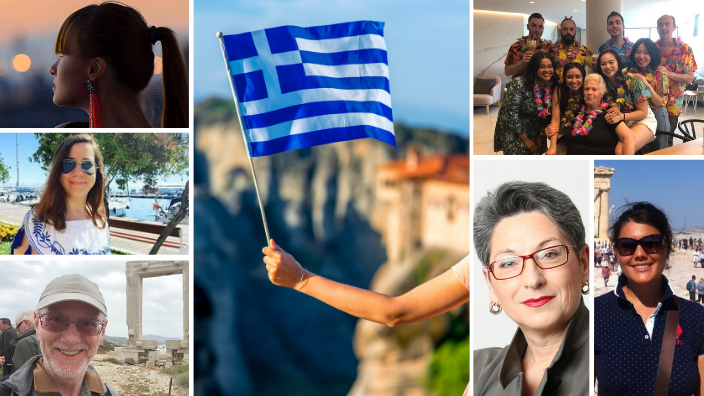A dead language, too hard to learn, who uses Greek these days, how useful is it going to be in the future?
According to various studies, Greek is one of the hardest languages for an English speaker to learn. But once you master it, you are in for a treat, to not only better understand about 150.000 words of the English language that are derived from Greek but to also experience the culture!
Is this not convincing enough?
Six non-native speakers from around the globe and of different age groups gave us their own reasons for learning Greek.
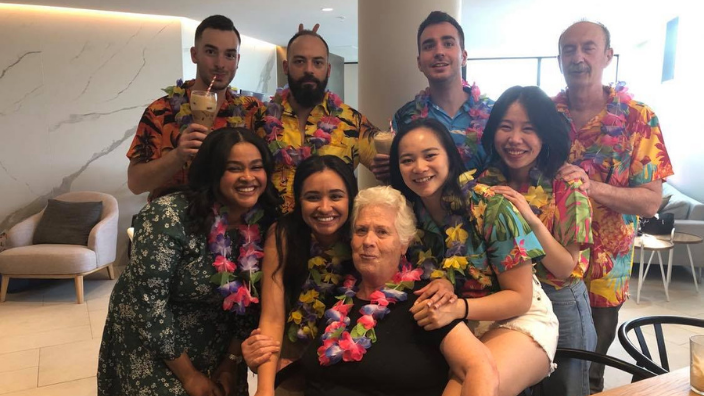
Kimberley May Lynn Chan, Melbourne
Kimberley, 24, is of Malaysian – Chinese background, lives in Melbourne and started learning Greek due to her love for languages, but also to be able to communicate with her partner’s ‘γιαγιά’.
“I wanted to be able to speak with her without needing my partner around to play translator. Nowadays, I can safely maintain a basic conversation.
“It helped me feel closer to my partner and his family. It’s a special feeling being in the moment and understanding the jokes and banter right off the bat rather than having to interrupt my partner and ask what’s happening during Christmas, Easter and ‘γιορτή celebrations’,” says Kimberley.
“My advice to fellow Greek learners, whether you are 2nd/3rd generation Greek abroad or someone who’s just fascinated with the country, people and culture, be persistent. I found that whenever I expressed my desire to learn Greek, I’ve been advised by other Greeks or Greek-Australians that it’s a hard language.
“On the other hand, they get very proud and excited when you make the slightest attempt to converse in their language and will help you in any way possible, with constructive feedback or just gawk because they weren’t expecting it. Welcome aboard this wonderful journey of learning one of the mostly beautiful languages in the world!”
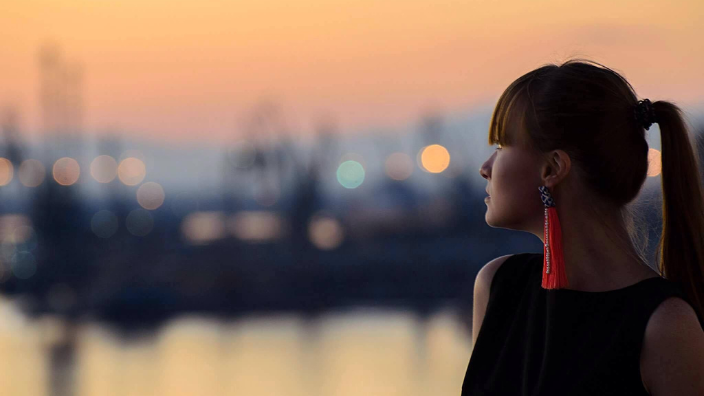
Olga Tsuprykova, Ukraine
Olga is Ukrainian but she has Greek roots as family from her paternal side hails from the Kostyantynopil’ in Donetsk Oblast.
“This region has plenty of settlements founded by Greeks displaced from their native lands in Crimea in late 18th century. Today, the region is home to nearly 100,000 ethnic Greeks,” Olga, 31, tells The Greek Herald.
“I started learning Greek since I first visited Greece in 2016… My primary motivation was caused by a need to discover parts of my identity.
“I used to be a Young European Ambassador in Ukraine and because I knew Greek I was able to connect with Greek speaking young leaders from the European Union,” Olga says.
“My advice to those who are thinking of learning it, is to fall in love with its sound, the way words are formed, its connection to the ancient civilizations and its role in the development of the global culture”.
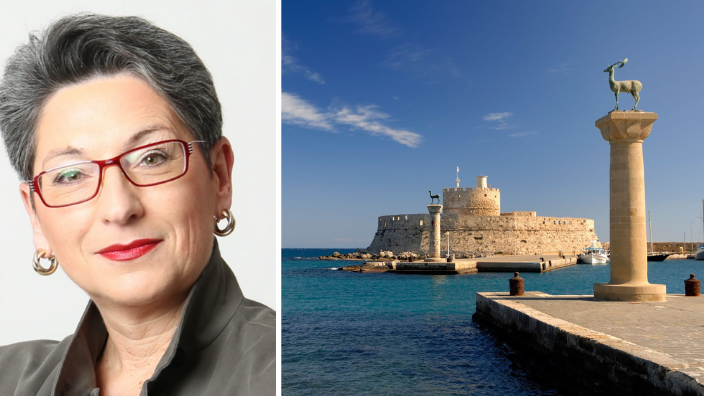
Irene Podovsovnik, Vienna
Irene, 58, is a lawyer and lives in Vienna with her family. She fell in love with Greece and started learning the language in 1979 during her first trip to the country.
“In the 90s I met my husband who shared my love for Greece. Since then, we go to Rhodes almost annually for vacations. The wish to learn the language properly was always there so when I was 50 years old, I donated to myself Greek private lessons. After some years I even took an exam level A2 at university.
“I had to stop for a while but now I’m studying again. I need the language when I stay in Greece and I might use it in my profession in the future,” Irene says.
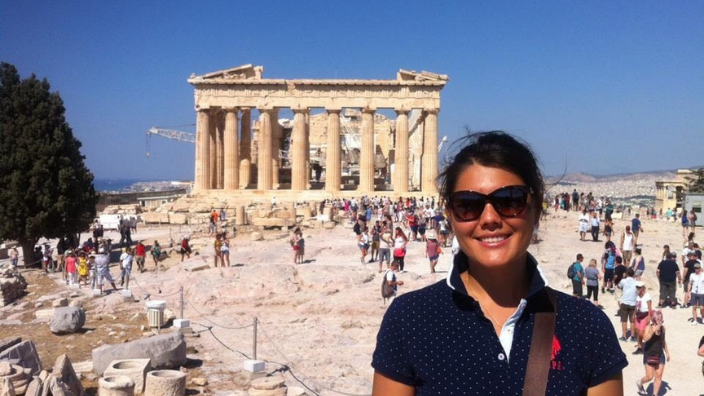
Fiona Craig, Melbourne
Fiona is originally from Melbourne and decided to learn Greek after a trip to Greece to visit her great uncle’s grave who lost his life in Greece during WWII.
“My great uncle who was a war hero, died in Greece in WWII. In 2016 I made a pilgrimage to Farsala where he died and to his grave in Athens War Cemetery. I loved the country so much that I extended my trip and have been back a few times since!
“I have been learning Greek for about 6 months. I started learning because I love the sound of the language, how expressive it is, and I would love to spend more time there. Learning Greek is also very interesting from a historical and cultural perspective. I am not an expert but I think to learn Greek you have to be patient, have fun and don’t try to be perfect,” Fiona says.
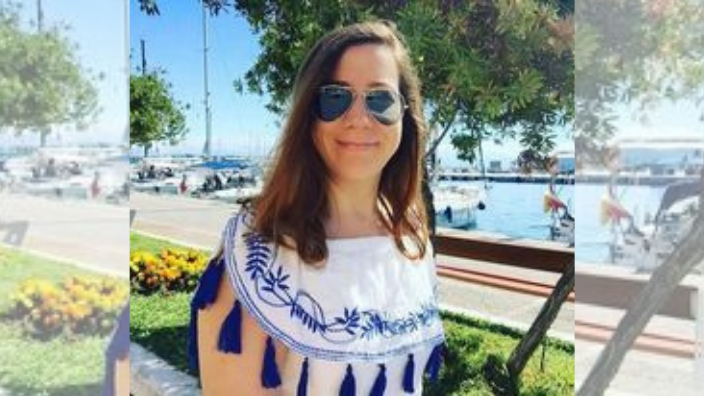
Ayşe Nermin Önol Altipat, Turkey
Ayşe’s grandfather was born in Thessaloniki and went to Turkey when he was still a child.
“I have been learning Greek for three years. My mother raised me with Greek music. One day, I decided that I wanted to be able to understand the meaning of the songs.
“My life changed after I learnt the language. Especially my way of thinking. I am able to think more analytically and, in my opinion, speaking Greek is a great skill for everyone to have,” Ayşe said.
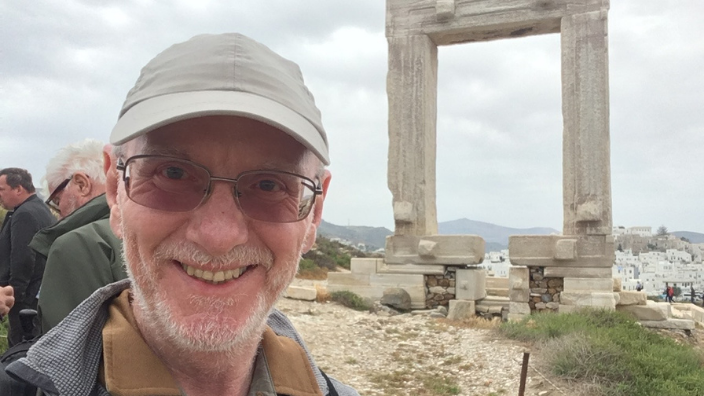
Jim Cleary, England
Jim Cleary, 67, is a retired British Hellenophile who has visited Greek over 20 times and as he says has made sporadic attempts during the last ten years to learn Greek.
“I started learning the language from my desire to learn a bit more than ‘please’ and ‘thank you’ as I think it shows respect for the country and the culture. I also see it as a good activity to keep mentally active during lockdowns,” says Jim.
Asked about his advice to people who learn Greek he says “keep trying – don’t be put off by the different alphabet”.
READ MORE: International Greek Language Day: Top 5 surprising facts about our native tongue

